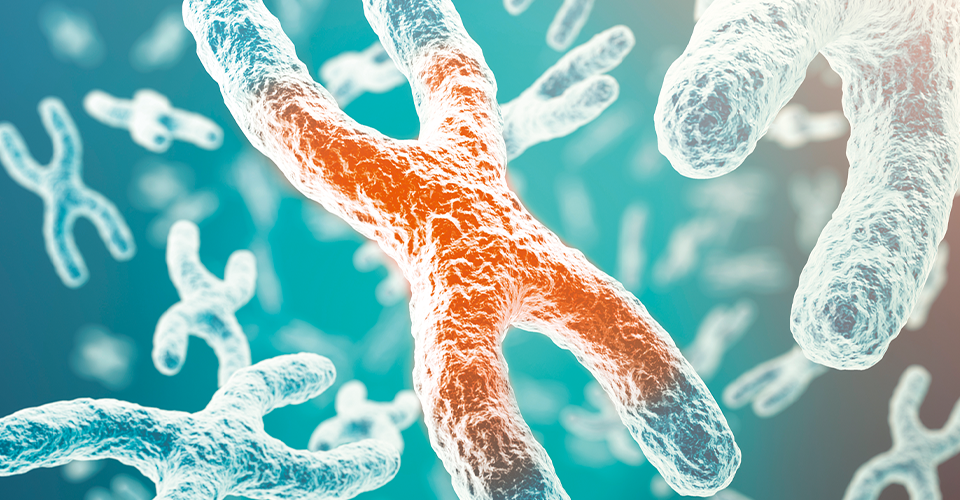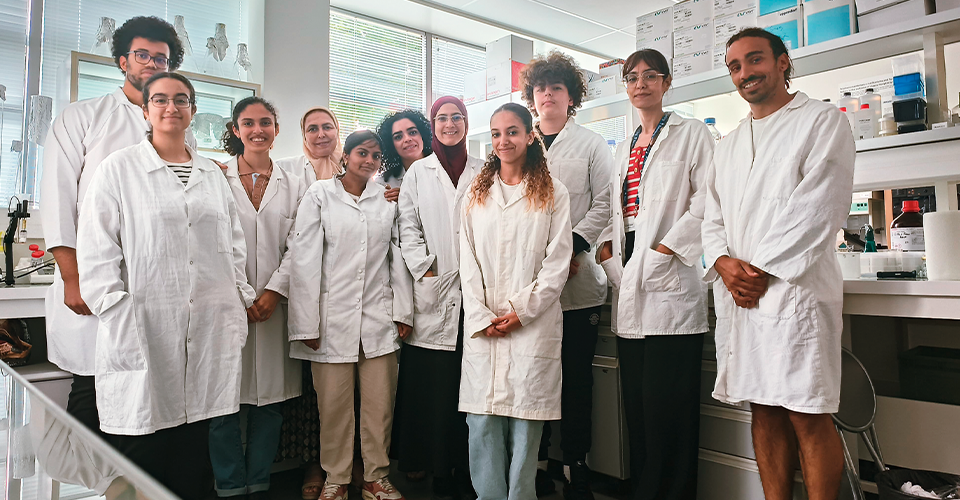Cell Environment: detection of age-related DNA damage

Present at Genopole since 2016 and within the SEM facilities for the last two years, Cell Environment is a start-up specialized in detecting DNA damage, not only in unique but also in repetitive sequences such as telomeres and centromeres. The company's activity is focused on developing diagnostics for cancers and premature aging disorders. Cell Environment was created in 2016 by its current chief executive officer, Dr. Radhia M'kacher, PhD-HDR, after 20 years of academic research. Her company enables the transfer of novel automated quantification technologies for telomeres (markers of aging), centromeres and chromosomal abnormalities to routine clinical practice. "The technology was validated and patented in 2018. Since then, we've made progress in our understanding of the role of repetitive sequences, not only in disease but also in treatment response," underlines Dr. Radhia M’kacher.
To increase the chances of recovery, we've made important breakthroughs in both the automation and simplification of cytogenetic analyses to ensure that our biomarkers can be used easily in medical biology labs.
Today, the work done by Cell Environment is advancing on two axes: the standardization of this new automated technology and the identification of new biomarkers in clinical cohorts, particularly for the early detection of several pathologies. The first, key products resulting from the company's innovation are in vitro diagnostics and three analysis programs accessible via a cloud-based platform.
Biomarkers to better target patients
As concerns research, Cell Environment was a laureate of the RHU (university hospital research) call for proposals for lung cancer. In that setting, the analysis of telomeres and associated abnormalities may be able to predict immunotherapy response. "Our hope is to develop biomarkers that will allow us to predict if any one patient is eligible for immunotherapy instead of standardized treatments. We are working with the Gustave Roussy Hospital to conduct the study, under the sponsorship of Professor Benjamin Besse, a medical oncologist specialized in the management of thoracic cancers and the head of clinical research at Gustave Roussy," explains Dr. M’kacher.
A second major project developed as part of France 2030 and scheduled for completion in September 2025 is the automation of cytogenetic analyses and the online deployment of the company's digital platform. "We're launching a third state-supported project, carried out with an AP-HP analysis platform, for the real-time clinical validation of our technology," announced Dr. M’kacher. Cell Environment is also involved in several academic research programs aimed at establishing a better understanding of the role of premature aging in the development, progression and complication of pathologies. Two CIFRE theses are underway, 25 articles have been published in high-impact journals over the last few years, and two patents are currently being filed.
Setting the sights on marketing
"Being in a SEM Genopole lab is an undeniable advantage in terms of space and for facilitating and fluidifying interactions with other biocluster teams, not to mention benefiting from Genopole's international aura. When we have particular needs, we generally get what we ask for, which greatly simplifies our work. Thanks to Genopole, I was able to participate in several national and international trade fairs and events, for example Arab Health (UAE) or the visit to Research Triangle Park (North Carolina, USA). We are considering an affiliate in Dubai to complement our French presence," states the start-up's CEO.
Today, the company is considering an affiliate in Dubai to complement its French presence.

Currently, Cell Environnement is moving into the industrialization and commercialization phase for its process. The company is looking for kit distribution partners and market deployment funds. "Over the coming years, our ambition is to obtain the certification needed for national healthcare insurance reimbursements, and thereafter to develop novel techniques and age-related biomarkers for other pathologies such as liver cancer. We're developing an innovative and automated cytogenetic-genomic approach on very low-volume samples. It allows us to cross the quantification of telomeres with the detection of chromosomal abnormalities and markers of chromosome instability," explains Dr. M’kacher. The company's ultimate goal is to become an indispensable actor in the detection of DNA damage associated with premature aging.
